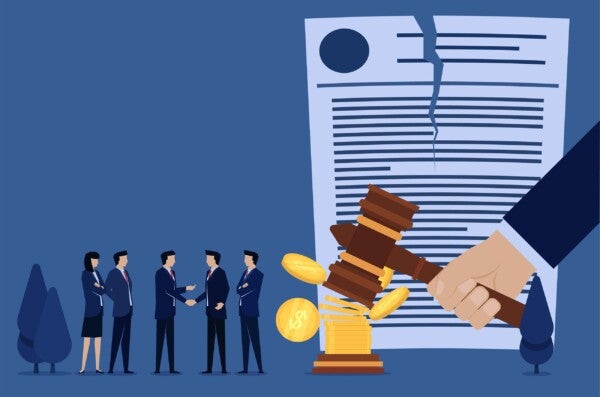Securities Watchdogs Bark More, Bite Less
SEC files more cases in September, right before a reporting deadline to Congress
Based on the research of Matthew Kubic and Sara Toynbee
The Securities and Exchange Commission acts as Wall Street’s traffic cop, fining companies for such infractions as securities fraud and insider trading. New research from Texas McCombs finds another parallel between the SEC and traffic enforcement: pressure to meet self-imposed quotas.
Assistant accounting professors Matthew Kubic and Sara Toynbee find that the agency files twice as many enforcement cases in September as in other months; they call this phenomenon the September spike. They also link the increase in cases to smaller fines that reduce what the government takes in from violators.

The reason for the spike, they suggest, is that the end of September is a reporting deadline. The agency accounts to congressional oversight committees on its performance for the fiscal year that’s ending and justifies the money it’s requesting for the new year.
“The SEC prominently discusses the number of case filings as evidence of the efforts of staff and the success of the commission during each year,” Toynbee says. “Reporting pressures could contribute to why case filings in September are higher than in other months.”
Meeting Caseload Targets
With Dain Donelson of the University of Iowa, the researchers analyzed 13,547 SEC cases from 2000 to 2020. They found considerable evidence of the spike and its connection to performance reporting.
- The agency files 115% more cases in September than in the average month, peaking during the final week.
- September filings increase more when oversight is led by a party that does not control the White House, meaning increased SEC scrutiny.
- The increase in September filings is smaller during a new SEC chair’s first year, a honeymoon period when the agency faces less political pressure.
- The spike is greater in years when new cases have not kept pace with the previous year. SEC attorneys confirmed to researchers that the agency uses preceding year numbers as benchmarks.
To help boost its numbers, the study finds, the agency tends to file fewer complex cases than in other months. “This could be concerning, especially if the complex cases are delayed for a really long period of time,” Kubic says.
The agency also tends to settle for lower fines. September fines average $138,000, compared with $270,000 for cases settled in other months. Over 20 years, that added up to a $48 million discount.
The overall effectiveness of SEC enforcement is at stake, the researchers suggest. Lower fines may do less to deter bad behavior. Corporate attorneys may try to stall cases until September, hoping for better deals.
“When we spoke to individuals on the defendant side, they indicated that they’re aware of this phenomenon,” Toynbee says. “They may look to leverage the SEC staff’s incentives to finalize cases at year-end to obtain more favorable terms for their clients. Some colloquially referred to it as the ‘September sale.’”
Supreme Court Might Squelch Spike
The SEC may not be alone, say Kubic and Toynbee. Other federal agencies might exhibit enforcement surges, such as the Commodity Futures Trading Commission, which also submits performance reports to Congress.
But that pattern could change, they say, because of a case the U.S. Supreme Court decided in June.
In SEC v. Jarkesy, a hedge fund operator challenged the agency’s ability to try administrative cases in-house, instead of through civil suits in courts.
That’s significant, because administrative cases dominate the September spike, Kubic notes. “If you know a case is going to be quick in administrative court, and the SEC is almost guaranteed a win, then it’s easier to cram in a bunch of these cases at year’s end,” he says.
The Supreme Court’s decision saying defendants are permitted a jury trial means the SEC will have to file more civil suits, which take longer to play out. “One may conjecture that taking away the administrative courts will decrease the size of the September spike and result in more equal case filings throughout the year,” Kubic says.
– Steve Brooks
About this Post
Share:


